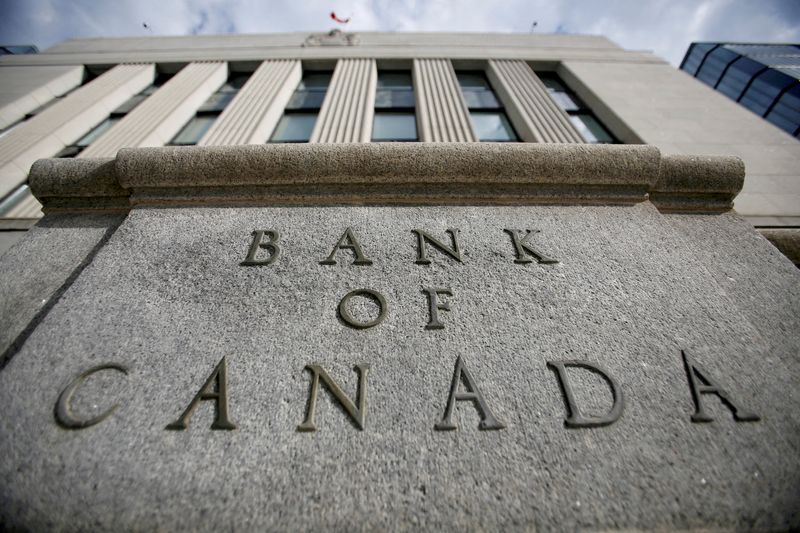By Fergal Smith
TORONTO (Reuters) - Canada's inverted yield curve is signaling the Bank of Canada may raise interest rates to a level that triggers a recession, placing the central bank in a tough spot as it aims to tame high inflation and engineer a "soft landing" for the economy.
The yield on the Canadian 10-year government bond has fallen some 50 basis points below the 2-year yield. That's the biggest inversion of Canada's yield curve in Reuters data going back to 1994 and deeper than the U.S. Treasury yield curve inversion.
Some analysts see curve inversions as predictors of recessions. Canada's economy is likely to be particularly sensitive to higher interest rates after Canadians borrowed heavily during the COVID-19 pandemic to participate in a red-hot housing market.
"It makes sense that we should see more of an inversion this cycle than we have in the last few just because there is so much more of a central bank overtightening component to this," said Andrew Kelvin, chief Canada strategist at TD Securities.
"That's what happens when central banks fall behind the curve."
The Bank of Canada, like many other central banks, held that inflation was "temporary" or "transitory" into the fall of 2021, and did not start raising borrowing costs until March 2022, when inflation was more than double the 2% target.
Canada's annual inflation rate hit 8.1% in June, its fastest pace since 1983.
Investors have worried that central banks around the world will be unable to cool price pressures without triggering downturns. The Bank of England last week built a lengthy recession into its forecast.
Meanwhile, the BoC has continued to project Canada will experience a "soft landing" in which the economy slows but does not tip into recession.
"Such an outcome is not entirely impossible, but I don’t think they'd ease up (on rate hikes) because of a recession if inflation proves to be persistent," said Derek Holt, head of capital markets economics at Scotiabank.
Since March, Canada's central bank has raised its benchmark lending rate by 225 basis points to 2.50%, including a full-percentage-point hike in its last policy decision in July.
After U.S. data on Wednesday showed an easing of inflation pressures, money markets reduced their bets that Canada's central bank would hike rates by another three-quarters of a percentage point next month.
Still, the BoC's policy rate is expected to climb to a peak of about 3.50% in the coming months, moving above the top of the 2%-3% range that the central bank estimates to be a neutral setting, or the level at which monetary policy is neither stimulating nor weighing on the economy.
Such a restrictive setting would likely test the resilience of Canada's economy, including the housing market, which has slowed rapidly in recent months.

"In Canada, investors are worried about the impact a downturn in housing markets - and a longer-term household deleveraging cycle - could have on the wider economy," said Karl Schamotta, chief market strategist at Corpay.
"Under the central bank's mandate, price stability trumps near-term economic growth considerations."